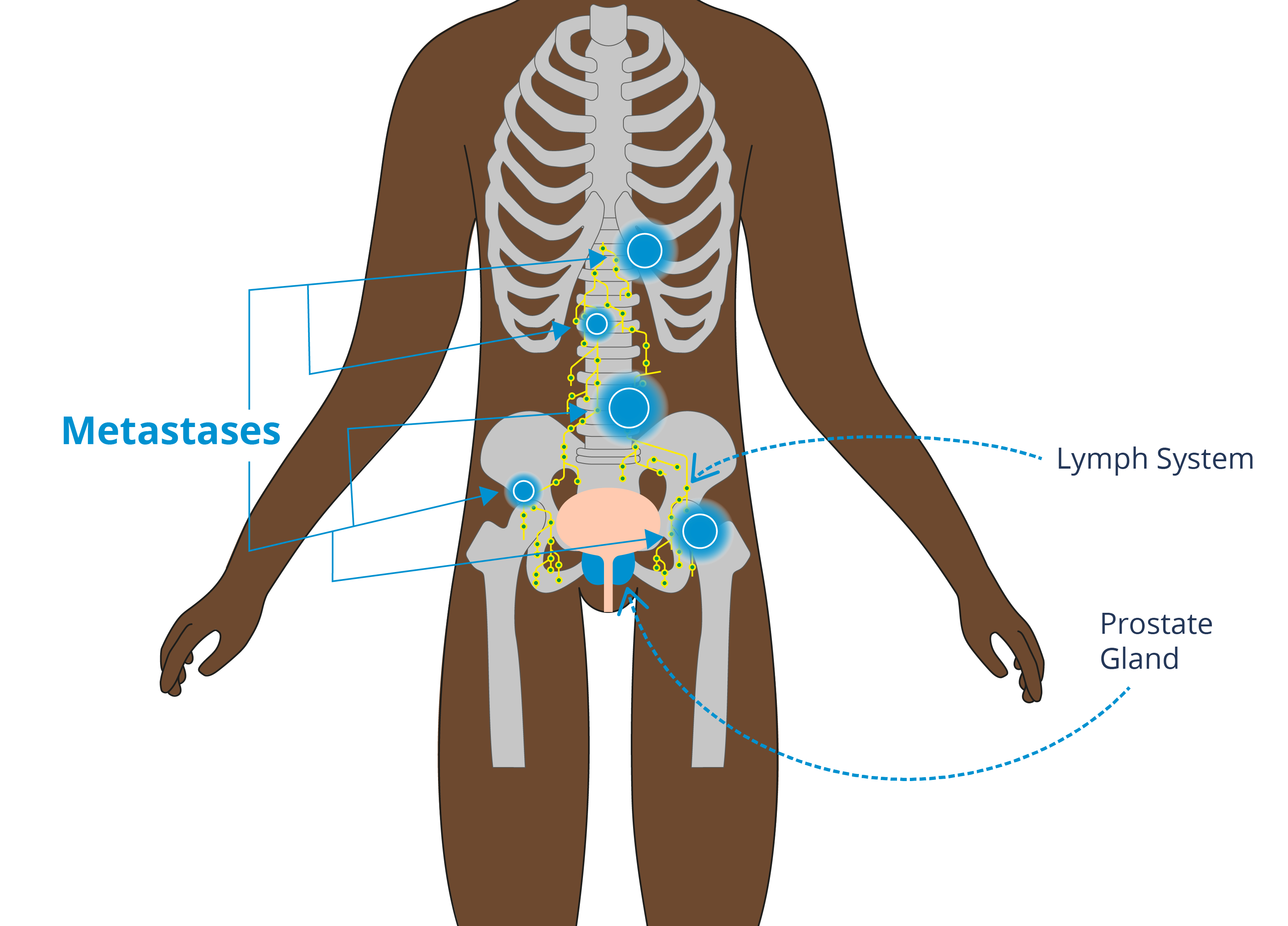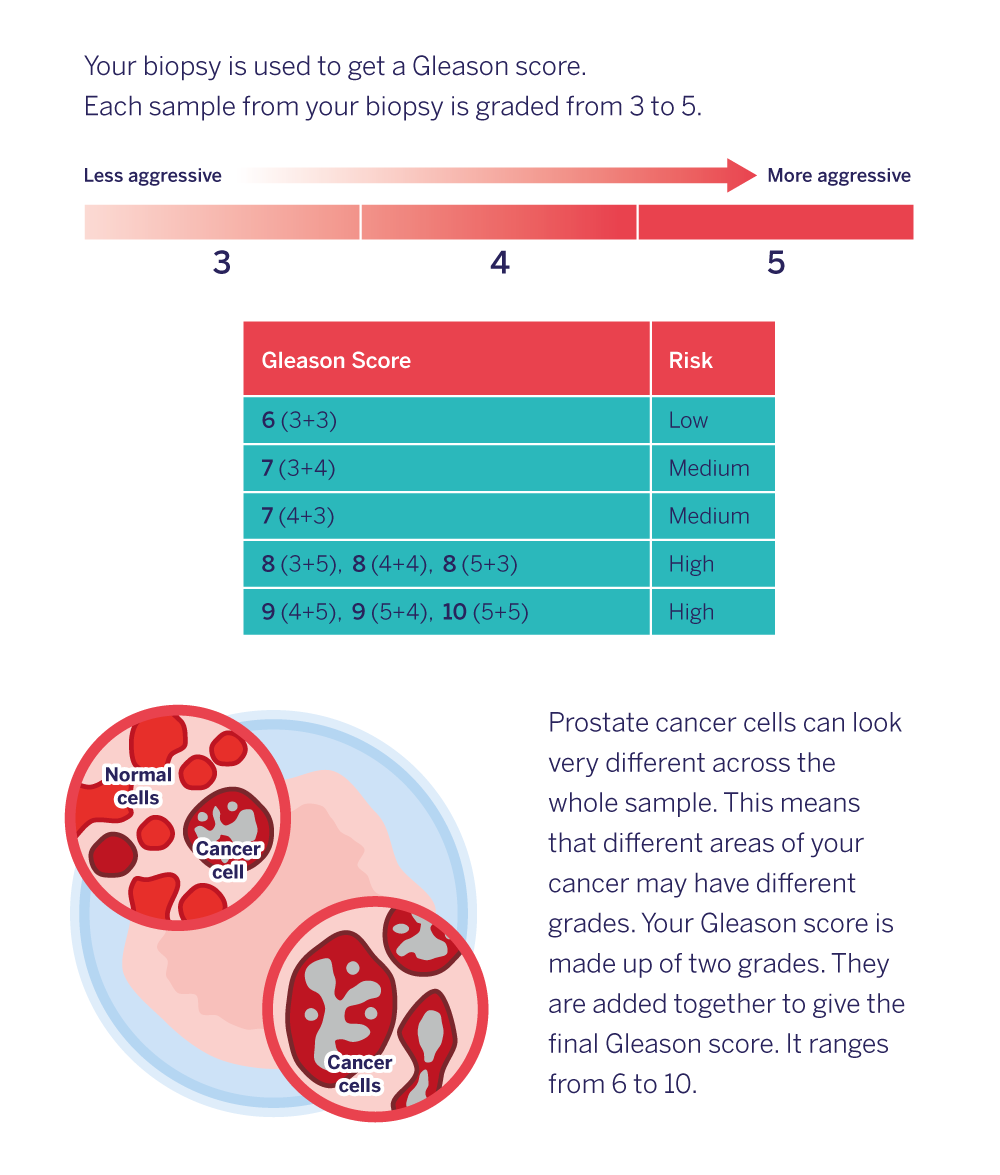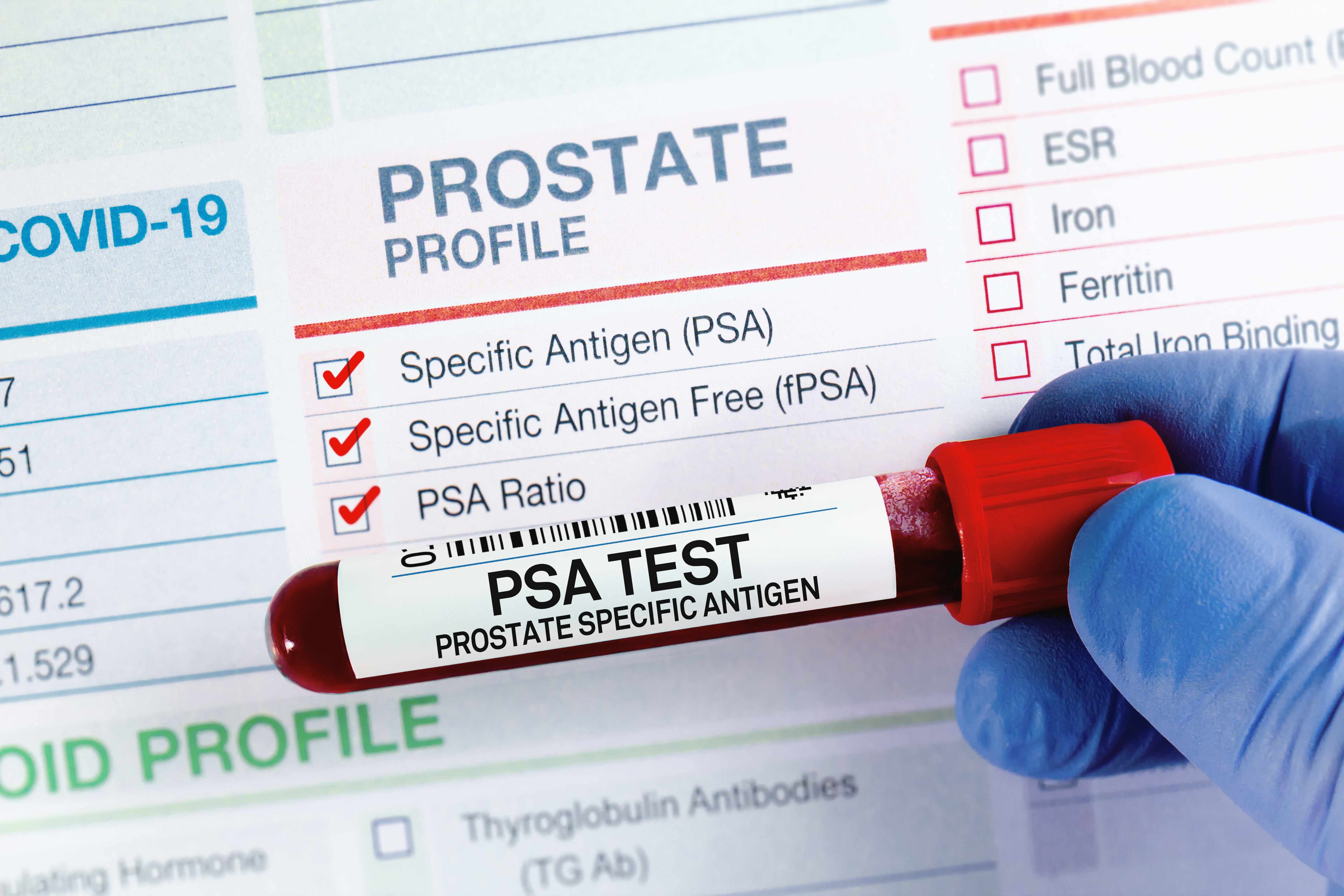Information you will need
We want to make sure that we give you information that is most suitable for your situation. So that we can do this, you will need to have some of your medical information at hand.
This may include information about:
- Spread of your cancer (metastases)
- Gleason score or grade group
- Stage of your cancer
- Latest PSA level
You can get all of this information from your specialist nurse or doctor (urologist or oncologist).
The information below will tell you more about each of these types of information.
What is metastatic prostate cancer?
- Prostate cancer metastases are small ‘seeds’ of your prostate cancer (the primary cancer) that have spread to other parts of the body.
- In prostate cancer, the most common areas of metastases are the lymph nodes (glands) and the bones. It can also spread to other parts of your body, e.g. the lungs.
- It is still known as prostate cancer wherever it is in the body.

What are lymph nodes?
Lymph nodes (glands) are part of the immune system. They are small bean-shaped nodules that contain special cells called lymphocytes. These help to fight infection.
What are pelvic lymph nodes?
Pelvic lymph nodes are found in your pelvis. The pelvis is the area of the body below your tummy (abdomen). It holds your hip bones, bladder, rectum, and reproductive organs.
How can I find out whether I have metastases?
You can ask your specialist nurse or doctor (urologist or oncologist). You may also find this on one of your letters from the hospital.
What is cancer grading?
The grade of your cancer tells your doctor how abnormal the cancer cells look under a microscope.


How do I find my Gleason score or grade group?
These can often be found on one of your letters from the hospital. If you can't find them, ask your specialist nurse or doctor (urologist or oncologist).
To learn more about cancer staging and grading you can visit our grading and staging page (link will open in a new tab).
How does cancer staging work?
The type of staging that is most often used is the TNM staging system. This helps doctors to see:
- How big your cancer is
- Its position
How far it has spread.
- T stands for tumour
- N stands for node
- M stands for metastases
To get the best from the treatment tool, you will need to know your T stage.
T describes the size of the tumour. It goes from T1 to T4.
T1 tumours
T1 tumours are very small. They are confined within the prostate and can only be seen under a microscope.
T2 tumours
T2 tumours are confined within your prostate.

T3 tumours
T3 tumours have broken through the covering of the prostate. Some may have spread to your seminal vesicles. The seminal vesicles produce most of the fluid contained within your semen.
T4 tumours
T4 tumours have spread into tissue that is close to the prostate. For example, the bladder, back passage (rectum) or wall of your pelvis.

How will I find out my T stage or how far my cancer has spread?
You can ask you specialist nurse or doctor (urologist or oncologist).
To learn more about cancer staging and grading you can visit our grading and staging page (link will open in a new tab).
What is prostate specific antigen (PSA)?

The prostate produces a protein called prostate-specific antigen (PSA). PSA helps to make your semen more liquid. Some PSA leaks into your blood. How much will depend on:
- Your age – it raises slightly as you get older and your prostate grows
- The health of your prostate.
What is a PSA test?
A PSA test is a simple blood test. This measures the amount of PSA in your blood. The test only takes a few minutes and can be done at your GP surgery.
What can a PSA test tell me?
- It can help you to find out if you are more likely to have prostate cancer.
- Having a raised PSA does not necessarily mean you have prostate cancer.
- The amount of PSA in your blood is measured in nanograms of PSA per millilitre of blood. You may see this written as ng/ml on your test results.
Where can I find my PSA level?
This may be on one of your letters from the hospital. If you can't find it, you can ask your specialist nurse or doctor (urologist or oncologist).
To learn more visit our page about PSA tests (link will open in a new tab).
